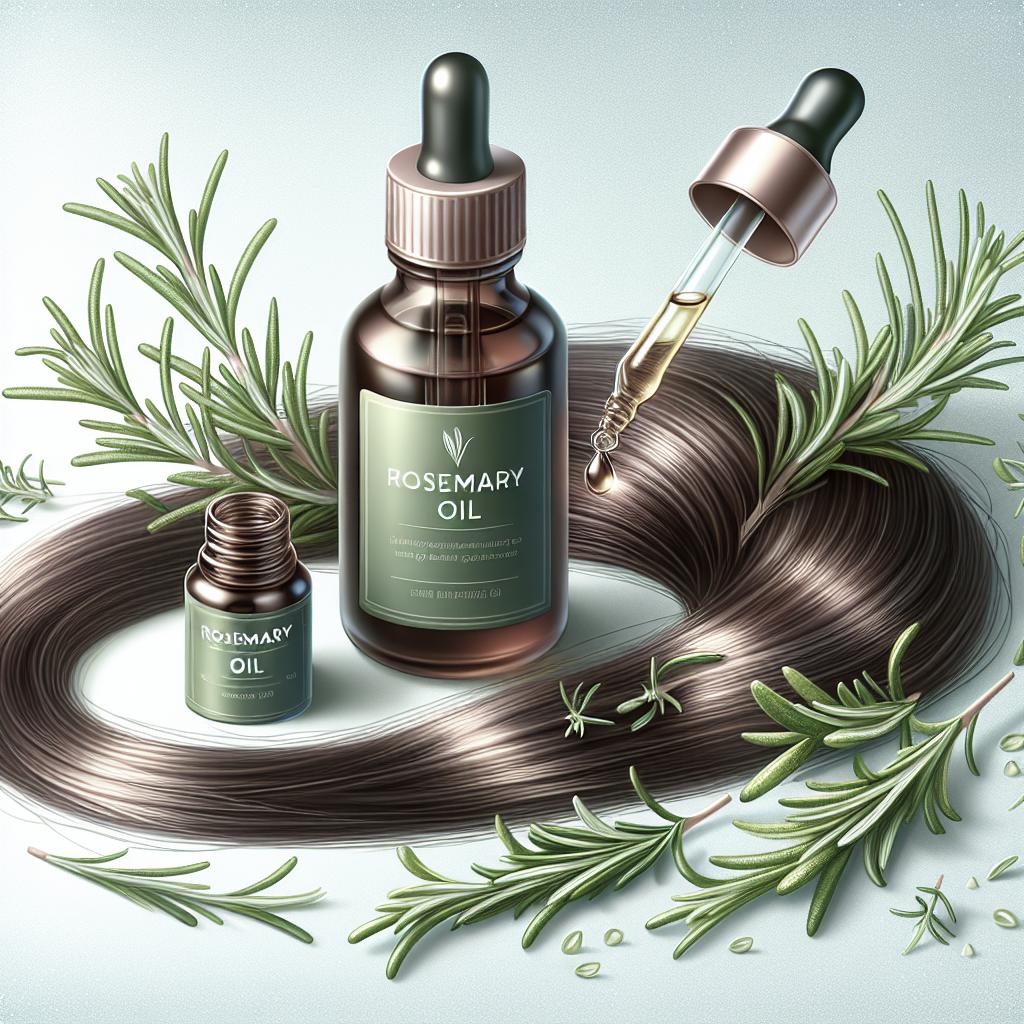How to Use Rosemary Oil for Hair
The pursuit of healthy, lush hair often leads us to explore natural remedies, with rosemary oil standing out as a popular choice. Known for its aromatic and therapeutic properties, rosemary essential oil is often hailed as a miracle worker for hair issues. This blog post delves into how rosemary oil is perceived in the context of hair loss treatments, the science behind its ability to stimulate hair growth, and practical methods for its application. Additionally, we’ll address important precautions and answer frequently asked questions to ensure you use rosemary oil safely and effectively. Finally, we’ll encapsulate the key points discussed in a neatly summarized table.
Can rosemary oil treat hair loss?
Rosemary oil has long been part of traditional medicine and beauty regimens due to its potential hair-boosting benefits. Its ability to stimulate hair growth and curb hair loss has gained attention, primarily because of its circulation-enhancing properties. Improved blood circulation to the scalp is crucial for delivering essential nutrients to hair follicles, potentially leading to healthier hair growth.
While scientific investigations are ongoing, preliminary studies suggest that rosemary oil can be as effective as minoxidil, a commonly prescribed treatment for androgenetic alopecia (pattern baldness). This has made rosemary oil an attractive natural alternative for those wary of synthetic treatments, especially for early-stage hair thinning or loss.
What makes rosemary essential oil support hair growth?
The primary mechanism through which rosemary oil supports hair growth lies in its ability to improve cellular generation. Rosemary oil is packed with antioxidants that combat free radicals, known to damage skin and hair cells. The anti-inflammatory properties also soothe the scalp, leading to a healthier environment for hair growth.
Additionally, rosemary oil contains compounds like ursolic acid, which dilate blood vessels and promote healthier blood flow, theoretically increasing the delivery of oxygen and nutrients to hair follicles. This nurtures stronger hair roots and could decrease hair loss while simultaneously promoting regrowth.
How should I use rosemary oil for hair loss?
1. Massage it directly into your scalp
One of the simplest methods to harness the benefits of rosemary oil is through scalp massage. By mixing a few drops of rosemary oil with a carrier oil such as coconut or jojoba oil, you can create a treatment to massage directly into the scalp. This method not only invigorates the senses but also directly stimulates hair follicles.
For best results, dedicate 5-10 minutes to gently massaging the mixture into your scalp. Allow it to sit for at least an hour or overnight before washing it out. Regular massages can bolster hair strength and promote noticeable changes in hair density over time.
2. Mix it into your hair products
Incorporating rosemary oil into your existing hair care routine can be as simple as adding a few drops to your shampoo or conditioner. This method not only maximizes the convenience factor but also ensures consistent exposure to the oil’s beneficial properties without altering your routine significantly.
To do so, mix 3-5 drops of rosemary oil into your shampoo prior to application. Use as per your normal washing routine, ensuring the blend makes contact with your scalp for optimal absorption. This turns every hair wash into an opportunity for hair nourishment and rejuvenation.
3. Add it to homemade shampoo
For those who prefer natural DIY solutions, creating a homemade shampoo infused with rosemary oil can be fulfilling. Combining castile soap with aloe vera gel, coconut milk, and about 10 drops of rosemary oil can produce a nourishing concoction that cleanses and revitalizes hair.
This homemade shampoo not only provides the benefits of rosemary oil but also introduces other natural ingredients that promote overall scalp and hair health. Ensure proper storage and refrigeration of the mixture to maintain its efficacy over time.
What should I know before using rosemary oil?
While rosemary oil presents a natural route to better hair health, it is essential to proceed with caution. Conducting a patch test before full application is advisable, particularly for individuals with sensitive skin or allergies. Some people may experience itchiness or redness, indicating an adverse reaction.
It’s also beneficial to dilute rosemary oil with a carrier oil to mitigate the risk of skin irritation. Pregnant women, nursing mothers, and individuals with medical conditions should consult healthcare professionals before using rosemary oil to ensure its suitability to their health context.
Frequently asked questions
Can I apply rosemary oil directly to my hair?
Applying rosemary oil directly to the scalp is common, but it’s critical to ensure it’s adequately diluted with a carrier oil. Pure essential oils are potent and can cause irritation if applied directly to the skin without dilution.
Does rosemary oil help hair growth?
Yes, rosemary oil is reputed to help with hair growth due to its ability to improve circulation to the scalp and stimulate follicle activity. Regular use can result in thicker, healthier hair over time.
Is it OK to leave rosemary oil in your hair?
Leaving rosemary oil in your hair, especially when mixed with a carrier oil, is generally safe and can enhance its benefits. However, ensure the mixture is well-diluted and wash it out if you experience any discomfort.
How often should I apply rosemary oil for hair growth?
Frequency is key when using rosemary oil for hair growth. Most find that applying it 2-3 times a week as part of their hair care regimen yields positive results without overwhelming the scalp.
The bottom line
| Topics | Main Points |
|---|---|
| Can rosemary oil treat hair loss? | Rosemary oil can improve circulation and may rival minoxidil in treating hair loss. |
| Supporting hair growth | Contains antioxidants and ursolic acid, boosts circulation, and combats inflammation. |
| Methods of use | Massage into scalp, mix into hair products, or create homemade shampoo. |
| Precautions | Conduct a patch test; dilute with carrier oils; check with health professionals if needed. |
| FAQs | Addresses direct application, growth potential, safe usage practices, and usage frequency. |
This blog post provides an engaging and informative approach to using rosemary oil for better hair health while ensuring reader safety through carefully structured advice.


